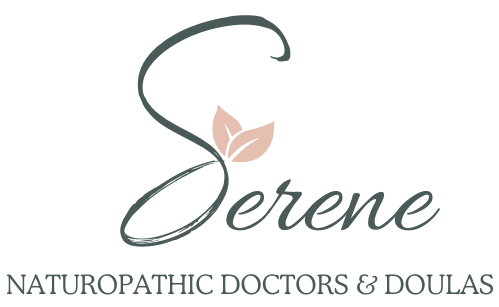Collagen Benefits: Boost Skin, Joints, & More! How to Get It with Naturopathic

All About Collagen: Your Guide to a Healthier, Younger You
This article dives deep into the world of collagen, exploring its various types, benefits, and how to increase your intake naturally and through supplementation. Discover how collagen can support your skin, joints, muscles, and overall well-being!
Serene Clinic Naturopathic Clinics Toronto Book Your Free Consultation Today
What is Collagen and Why is it Important?
Collagen constitutes a vital part of connective tissues found throughout the body, such as tendons, ligaments, skin, and muscles. This protein is formed by a combination of 20 amino acids. The body produces four different types of collagen, each serving distinct functions within the body. It’s essential to understand these types to choose the most appropriate one [refer to a specific section on collagen types if available].
Collagen production starts declining around the age of 30, with a more pronounced decrease beginning around age 35. In women, menopause triggers a significant 30% reduction in production within the first five years, followed by a subsequent annual decline of 2%. Similar declines in production are likely observed in men between the ages of 50 and 60.
Serene Clinic Naturopathic Clinics Toronto Book Your Free Consultation Today
Benefits of Collagen for Overall Health
Collagen provides various benefits across different parts of the body:
- Skin: It reduces wrinkles and enhances skin elasticity.
- Muscles: It supports muscle mass development.
- Tendons: It maintains tendon strength and durability, stabilizing joints.
- Joints: It promotes joint mobility and reduces discomfort.
- Digestion: It aids in healing leaky gut and supports gut health.
- Wounds: It accelerates tissue healing and promotes scar formation.
- Bone: It fortifies the bone matrix, preventing bone loss.
- Blood vessels: It strengthens vessel walls, guarding against cardiovascular disease.
Understanding How Consumed Collagen Works
When consumed orally, collagen doesn’t directly integrate into your body for immediate use. Instead, it provides essential nutrients in precise amounts that support your body’s natural collagen production. Therefore, additional nutrients like Zinc, Copper, and Vitamin C are crucial for collagen synthesis. For noticeable results, it’s recommended to take collagen consistently for a minimum of three months.
Serene Clinic Holistic doctor toronto . Book Your Free Consultation Today.
Harnessing the Power of Food to Boost Collagen
Here’s how you can leverage your diet to increase collagen intake:
- Bone Broth: Opt for cartilaginous bones for the best results. Pro tip: The gelatinous layer atop bone broth is actually collagen breakdown. Instead of discarding it, stir it back in for full benefits!
- Fish and Beef
- Chicken and Pork Skin
- Congee: An ancient Chinese porridge recipe known for its collagen-boosting properties.
- Organ Meat: Rich in proline and glycine, essential for collagen production.
- Remember: Always prioritize grass-fed and organic meats and bones for optimal nutritional benefits.
Serene Clinic Holistic doctor toronto . Book Your Free Consultation Today.
FAQ’s
General Collagen Information
- What is collagen? Collagen is a protein that provides structure and support to various connective tissues in the body, including skin, muscles, tendons, and bones.
- How many types of collagen are there? There are four main types of collagen, each with specific functions within the body.
- When does collagen production decline? Collagen production naturally declines around age 30, becoming more significant around age 35.
- What are the benefits of collagen? Collagen supports healthy skin, muscles, joints, digestion, wound healing, bones, blood vessels, and more.
- How does collagen work if I consume it? Consumed collagen provides building blocks (amino acids) for your body to produce its own collagen.
Collagen and Your Body
- How does collagen improve skin health? Collagen helps reduce wrinkles and enhances skin elasticity.
- Can collagen help me build muscle? Collagen supports muscle mass development and strength.
- Do I need collagen for healthy joints? Collagen is essential for joint mobility, flexibility, and reducing discomfort.
- Can collagen improve gut health? Collagen may aid in healing leaky gut and support overall digestive health.
- Does collagen help with wound healing? Collagen accelerates tissue healing and promotes scar formation.
Serene Clinic Doula Service . Book Your Free Consultation Today.
Collagen Consumption and Supplementation
- What foods are rich in collagen? Bone broth, fish, beef, chicken/pork skin, congee, and organ meats are all good sources of collagen.
- What nutrients support collagen production? Zinc, copper, and Vitamin C are crucial for collagen synthesis.
- How long does it take to see results from collagen supplements? It can take at least 3 months of consistent use to see noticeable results.
- Is collagen safe to take? Consult a healthcare professional for personalized guidance on collagen supplementation.
- What are the different types of collagen supplements available? Collagen supplements come in various forms, including powder, capsules, and liquids.
Naturopathic Approach to Collagen
- Can a naturopathic doctor help me with collagen? Yes! A naturopath can advise on optimal collagen intake and recommend suitable supplements.
- What are the benefits of seeing a naturopathic doctor for collagen? Naturopaths offer a personalized approach to collagen intake, considering your individual needs.
- Where can I find a naturopathic doctor specializing in collagen? Serene Clinic offers consultations with experienced naturopathic doctors who can guide you on your collagen journey.
Additional Collagen Concerns
- Are there any side effects of collagen supplements? Side effects are rare, but some may experience mild digestive issues. Consult a doctor if you experience any concerns.
- Is there anything else I can do to support collagen production? Maintaining a healthy lifestyle, including a balanced diet, adequate sleep, and managing stress, can also promote collagen synthesis.





